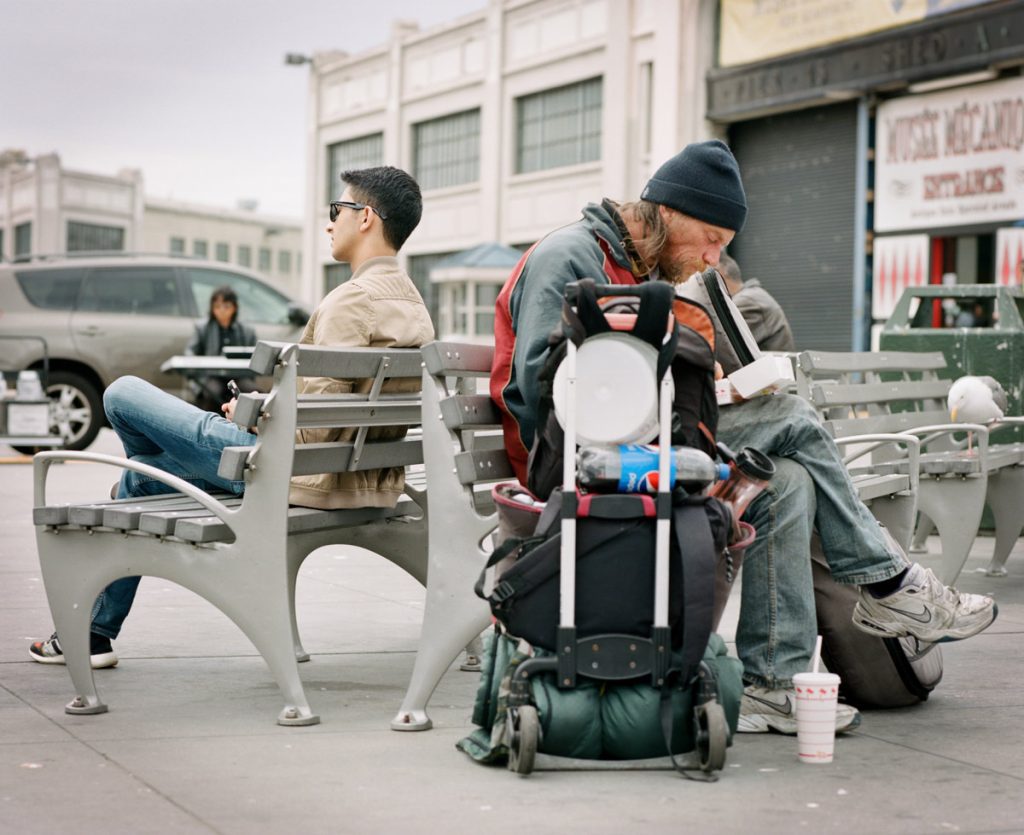Living in poverty is exhausting. People who cannot afford to live comfortably and pay all their bills often have to deal with extraordinary challenges while living under near-constant stress.
In the United States, with its wealth, many people live below the poverty line. A surprising 12.8% of the population falls under the poverty line, with many more struggling to make ends meet. The physical toll of poverty is significant, but the mental toll can be just as impactful.
The Definition of Poverty
Poverty can come in many different forms. There’s absolute poverty when people lack the means to purchase basic necessities such as shelter, food, and clothing.
Relative poverty refers to those with a lower standard of living than most others around them. Multidimensional poverty is more complex but refers to more than income by including low access to education, healthcare, sanitation, and other infrastructure.
In the United States, poverty is defined by a family’s income and whether or not it falls below the federal poverty level (FPL). Regardless of the type of poverty someone experiences, the mental health toll can be significant. Poverty is incredibly stressful and typically affects every area of a person’s life.
The Relationship Between Poverty and Mental Health
Mental health is affected by a wide range of factors—genetics, environment, health complications, stress, and more. Because of this, poverty usually has an enormous impact on a person’s mental health.
Income levels significantly impact issues such as housing stability, access to healthcare, diet, education, and more. If a family lacks resources to secure stable housing in a safe area, access reliable transportation, put healthy food on the table, or visit the doctor when they are ill, the members of that household are much more likely to experience mental health problems such as anxiety, chronic stress, and depression.
The mental health cost of living in poverty leaves people with few resources left over to do anything more than the bare minimum in their daily lives. Many work multiple jobs and must make tough decisions every day to ensure their survival. That is a heavy burden that takes a toll on mental health.
The Challenges of Being Poor
Being poor comes with daily challenges that affect health and well-being. For instance, a person might have to decide between paying the electric bill or making a credit card payment. Or, someone might have to weigh the cost of filling a prescription against another basic need like food.
Securing safe and stable housing is a huge challenge for people who don’t have a good credit history or the funds for a security deposit. The same goes for personal transportation—even if they can get financing for a car, it will likely be a high-interest loan that will worsen their financial situation.
Even getting access to food can be an ordeal. Food banks often have long lines, require travel and time, and don’t always provide healthy, fresh food that promotes good health. Food insecurity is a huge problem, especially for families with growing children at home.
These are just a few of the challenges people living in poverty face daily. The mental health toll of living on the bare minimum and making tough decisions every day is huge and tends to worsen over time.
The Impact of Poverty on Children’s Mental Health
Growing up poor has a devastating impact on children’s mental health. Because of the stress and uncertainty involved with being poor, they are more likely to develop problems such as depression and anxiety. They are also more likely to exhibit behavior problems than their peers and often fall behind academically.
Children who grow up in poverty are more likely to develop substance use issues as they enter adolescence and adulthood. Although these are not inevitable outcomes of growing up poor, poverty during childhood is a major risk factor for many mental health problems.
The Coping Mechanisms and Decision-Making Strategies of the Poor
People living in poverty often rely on unhealthy coping mechanisms and decision-making strategies for survival. These can lead to long-term problems. People who can’t afford to see a doctor might wait until the symptoms are so bad that they need to be treated in an emergency room. By that point, treatment might be less effective and will undoubtedly be more expensive.
People feeling anxious or depressed due to poverty may not make the best decisions. They might spend impulsively on credit cards to feel better, which eventually turns into even more stress and financial hardship. The ability to think rationally is often compromised when a person lives in constant poverty.
The Cycle of Poverty: A Multigenerational Issue
Poverty has long-term effects on a person’s health, well-being, opportunities, and overall happiness. Because being poor affects access to resources such as mental health care, quality education, and safe housing, breaking the cycle of poverty can be extremely challenging. Children who grow up poor are significantly more likely to live in poverty as adults and raise their own children in poverty.
Breaking the cycle of poverty takes more than food stamps and Medicaid. While these basic types of aid are crucial, they are not enough to break the cycle alone—access to educational opportunities, mental health care, and other supportive services is also critical. Poverty is a multigenerational issue that requires a nuanced and comprehensive effort to solve.
If you or someone you know experiences mental health issues, it is important to seek help from a qualified professional. Our Resource Specialists can help you find expert mental health resources to recover in your community. Contact us now for more information on this free service to our users.
About the Author: Sarah Daren has been a startup consultant in multiple industries, including health and wellness, wearable technology, nursing, and education. She implements her health knowledge into every aspect of her life, including her position as a yoga instructor and raising her two children.
Photo by Benjamin Disinger on Unsplash
July is BIPOC Mental Health Month
Observed each July and formerly recognized as National Minority Mental Health Awareness Month, BIPOC Mental Health Month highlights the unique mental health challenges and needs of Black, Indigenous, and other People of Color (BIPOC). Please join us in recognizing the struggles of BIPOC and bringing awareness to the need for adequate, accessible, culturally relevant mental health treatment, care, and services.
Black, Latino, Asian, and Native American people have higher rates of some mental health disorders and face greater disparities in getting help than White people, largely due to lack of access to services. With proper care, 70 – 90% of people with mental illness experience significant reduction in symptoms and improved quality of life. However, there are barriers to individuals seeking help for themselves or loved ones: access to and cost of treatment, stigma, and availability of local, culturally appropriate mental health care resources.
In 2022, Laurel House, the sponsor of rtor.org, established the Social Work Racial Equity Scholarship. The goal of the Scholarship is to cultivate more Black and Latino social workers who are committed to social change and increasing access to mental health care treatment by communities of color. Each year, a $10,000 scholarship is awarded to a Black or Latino student from Connecticut enrolled in a Master of Social Work program in Connecticut or New York. Two runner-up prizes of $1,000 and $500 are also awarded.
www.rtor.org and its sponsor Laurel House are committed to the advancement of racial equity and social justice and to making mental health services available to all.
The opinions and views expressed in any guest blog post do not necessarily reflect those of www.rtor.org or its sponsor, Laurel House, Inc. The author and www.rtor.org have no affiliations with any products or services mentioned in the article or linked to therein. Guest Authors may have affiliations to products mentioned or linked to in their author bios.
Recommended for You
- The Truth about Relapse in Addiction Recovery - April 14, 2025
- The Power of Peer Support in Mental Health Recovery - April 10, 2025
- Artificial Intelligence in Anxiety Management: How AI Helps Users Cope with Anxiety Symptoms - April 3, 2025





